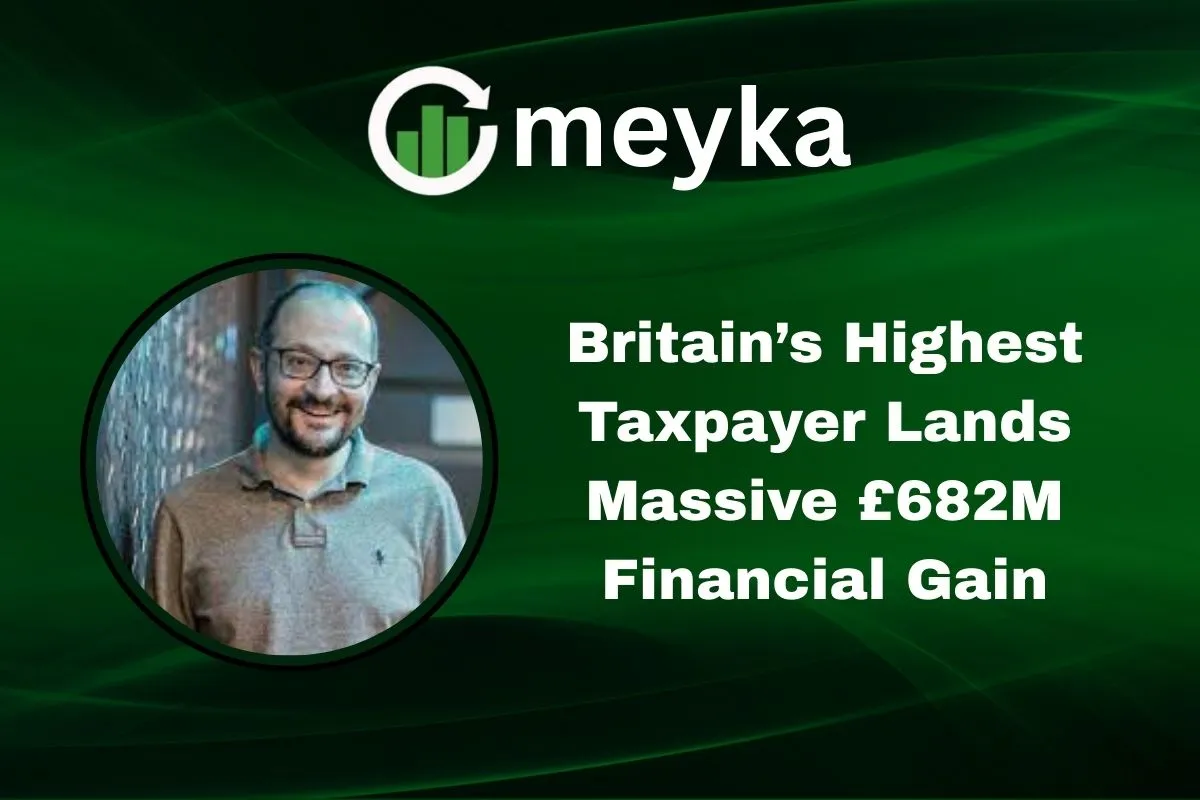Britain’s Highest Taxpayer Lands Massive £682M Financial Gain
Britain’s highest taxpayer has just landed a massive payday. Reports show that the country’s top contributor to the Treasury secured a financial gain worth £682 million. The figure is not just eye-catching. It also brings doubts regarding fortune, taxation, and the place of ultra-wealthy individuals in developing the economy of the UK.
We live in a time where public services are under strain, and households feel the weight of rising costs. Against this backdrop, one individual’s tax bill can make a huge difference. The magnitude of the gain encourages us to examine the details more closely. Who is this taxpayer? How did they reach such a milestone? What implications does this have for everyone else?
It is not only about personal wealth. It is also about responsibility, fairness, and the future of Britain’s tax system. By exploring the numbers, the background, and the wider impact, we can see why this record-breaking payday matters far beyond one person’s bank account.
Who Is Britain’s Highest Taxpayer?
We learn that Alex Gerko isn’t just any financial executive. He is a mathematician who built a cutting-edge algorithmic trading firm. XTX Markets uses advanced technology and machine learning to carry out electronic trading in financial markets. That blend of math, tech, and finance made him the UK’s top taxpayer by far.
Breakdown of the £682M Financial Gain
Gerko’s £682 million share was drawn from a total profit of £1.28 billion, which was divided among 31 partners. That means his share was more than half. Filings reported by Finance Magnates show that XTX Markets’ profits surged by 54%.
Tax Contributions: Numbers That Matter
While exact figures of his tax bill aren’t disclosed, being the highest taxpayer implies a massive contribution to the UK’s Treasury. The fact that one individual can pay such a high amount shows how much impact ultra-wealthy people can have on revenue. The over-£600m gain likely placed him in a top bracket of tax contributions.
Economic Context
Britain is in a tight spot economically. Families are strained, and public services are under pressure. In that environment, a colossal tax contribution from one person can help balance budgets, fund services, or even ease public finance gaps.
We also know that the UK’s richest 1% contribute about 30% of all income tax, more than at any point in the last 20 years, showing how vital high earners are to the tax system.
Wealth, Inequality, and Policy Debate
When someone lands a £682 million payday, it brings up broader questions. Is it fair that extreme wealth exists when many struggle? Should policies ensure they contribute more, or spread the tax base more broadly?
At the same time, this case can be seen in a positive light: someone succeeding and giving back via taxes. It sparks necessary debates on how tax rules can be fair and effective, while supporting economic growth.
The Bigger Picture: Impact on Business and Society
We often question whether wealthy individuals promote innovation, provide employment, or support society. In Gerko’s case, XTX Markets is at the frontier of fintech, which may bring growth, jobs, and tax revenues. Yet, over-reliance on a few mega-payers is risky. If profits fall or wealth shifts, public finance could suffer, too.
Conclusion
The headline “Taxpayer Lands £682M Payday” isn’t just shocking. It tells a deeper story about innovation, wealth, and responsibility. Gerko’s gain shows how individuals can powerfully shape national finances. Now the question is: how can Britain build a tax system that rewards success but supports fairness, sustainability, and shared progress?
Disclaimer:
This content is for informational purposes only and is not financial advice. Always conduct your research.






